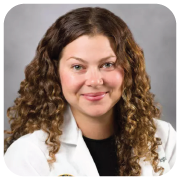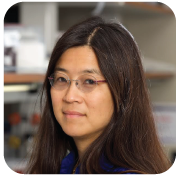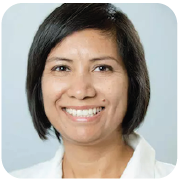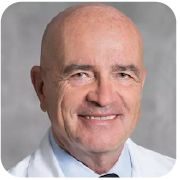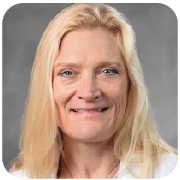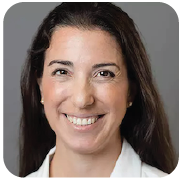
Clinical Studies
Trailblazing research to discover better clinical outcomes in Obstetrics, Gynecology, and Reproductive Sciences
To search by key word, study topic, clinical investigator's name or other criteria:
- Click Expand All, then use "command+F" or "ctrl+F" to enter topic of interest in "Find" search
Division of Complex Family Planning

| Study Title | Description | Eligibility | PI / Collaborators | Location |
|---|---|---|---|---|
|
UCSD Fourth Trimester Center Project Sponsor: Conrad Prebys |
The objective of this study is to assess the effect of delivering linked maternal and infant care longitudinally across the postpartum period co-locating care for birthing people and infants |
Inclusion: 18+ years old, English or Spanish speaking, delivered a baby in San Diego within the past 12 weeks Exclusion: Under 18 years old, delivered a baby more than 12 weeks prior and/or outside of San Diego County |
Collaborators: co-I Ukachi Emeruwa, MD, MPH |
San Diego |
|
Postpartum Integration of Vaccines and Contraception Trial (PIVoT) Sponsor: NIH |
The objective of this study is to assess the effect of utilizing gender-transformative strategies - i.e., those targeting restrictive gender-based norms – to deliver family planning (FP) in the context of a public health infant vaccination program in rural India. Our central hypothesis is that integrating community-based FP care with the existing infant vaccination program will reach more rural postpartum women and improve uptake of postpartum contraception. |
NCT05732142-ClinicalTrials.gov Inclusion: Postpartum people aged 18 and older, reside in rural Maharashtra, speak Marathi, delivered a baby within the past 8 weeks but did not undergo sterilization, hysterectomy or immediate postpartum IUD placement and do not have a new pregnancy. Exclusion: Under 18 years old, delivered a baby more than 8 weeks prior or planning to move out of the study area within the next 6 months. |
Collaborators: National Institue of Reproductive and Child Health, India; Center for Gender Equity and Health UCSD |
India |
Division of Gynecologic Oncology

| Study Title | Description | Eligibility | PI / Collaborators | Location |
|---|---|---|---|---|
|
Acrivon ACR-368-201/GOG-3082: A Phase 1b/2 Basket Study of ACR-368 as Monotherapy and in Combination with Gemcitabine in Adult Subjects with Platinum-Resistant Ovarian Carcinoma, Endometrial Adenocarcinoma, and Urothelial Carcinoma Based on Acrivon OncoSignature Status Sponsor: Acrivon Therapeutics, Inc. |
This study is examining the use of ACR-368 in patients with platinum resistant recurrent ovarian cancer. The trial is trying to also determine the potential utility of an OncoSignature on predicting response to treatment | NCT05548296-ClinicalTrials.gov | 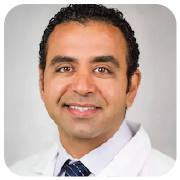 Ramez Eskander, MD |
Moores Cancer Center (MCC) |
|
Nuvectis GOG-3087 / ENGOT-GYN5 / NCRI / NXP800-101: A Phase 1 Clinical Study of NXP800 in Subjects with Advanced Cancers and Expansion in Subjects with Ovarian Cancer Sponsor: Nuvectis Pharma, Inc. |
Clear cell and endometrioid ovarian cancers are difficulct to treat malignancies. This trial is examining a novel drug, NXP-800 in the treatment of ARID1a mutated clear cell and endometrioid ovarian cancer. | NCT05226507-ClinicalTrials.gov |  Ramez Eskander, MD |
Moores Cancer Center (MCC) |
|
GOG Foundation No. GOG-3043: A Randomized Controlled Trial of Robotic versus Open Radical Hysterectomy for Cervical Cancer (ROCC trial) Sponsor: GOG Foundation, Inc. |
This clinical trial is looking to determine if the robotic laparoscopic platform is safe in the surgical management of appropriately selected cervical cancer patients. | NCT04831580-ClinicalTrials.gov |  Ramez Eskander, MD |
Moores Cancer Center (MCC) |
|
K-Group Beta ZN-c3-005 / GOG-3066: A Phase 2 Open-Label, Multicenter Study to Evaluate Efficacy and Safety of ZN‑c3 in Subjects with High-Grade Serous Ovarian, Fallopian Tube, or Primary Peritoneal Cancer Sponsor: K-Group Beta, Inc. |
Wee-1 inhibitors have shown proise as treatment strategies in the management of platinum resistant, recurrent ovarian cancer. This trial is looking to examine the efficacy of ZN‑c3, a wee-1 inhibitor, in platinum resistant recurrent ovarian cancer | NCT05128825-ClinicalTrials.gov |  Ramez Eskander, MD |
Moores Cancer Center (MCC) |
|
ImmunoGen: GOG-3078 IMGN853-0421: Randomized, multicenter, open-label, phase 3 study of mirvetuximab soravtansine in combination with bevacizumab versus bevacizumab alone as maintenance therapy for patients with FRα-positive recurrent platinum-sensitive epithelial ovarian, fallopian tube, or primary peritoneal cancers who have not progressed after second line platinumbased chemotherapy plus bevacizumab (GLORIOSA) Sponsor: IMMUNOGEN, INC. |
Antibody drug conjugates have emerged as an appealing treatment strategy in the management of ovarian cancer. Mirvetuximab is already approved in FR-alpha high recurrent, platinum resistant ovarian cancer. This trial is examining the potential use of mirvetuximab in combination with bevacizumab as a maintenance treatment in patients with FR alpha high, recurrent platinum sensitive ovarian cancer | NCT05445778-ClinicalTrials.gov |  Ramez Eskander, MD |
Moores Cancer Center (MCC) |
Division of Maternal-Fetal Medicine

| Study Title | Description | Eligibility | PI / Collaborators | Location |
|---|---|---|---|---|
| Pre and post-natal evaluation of CPAM | The aim of this study is to examine characteristics of pre and post-natal imaging that may be used to predict adverse outcomes and to compare the performance and pre and post natal imaging for diagnosis and prognostication of these conditions. |
Collaborators: Dora Melber |
UCSD (Fetal), Rady's | |
| Prospective and Retrospective observational Study in Human Subjects Undergoing Imaging Examinations in Pregnancy | This study will allow research to be done using data from imaging examinations that have been or will be performed for clinical care and compare to outcomes identified from medical records. |
Collaborators: MFM Faculty and Fellows |
UCSD (Fetal) | |
|
Multi-Omics for Maternal Health after Preeclampsia (MOM-Health) Sponsor: NIH |
To develop strategies to identify postpartum women at risk for adverse cardiovascular outcomes and provide them with preventative therapies. Over the course of the study, biospecimens and relevant surveys and cardiovascular assessments will be collected at specified intervals/time-points. |
Inclusion:
Exclusion:
|
Collaborators: UCSD: Marni Jacobs (MPI); Mariko Horii; Mana Parast; Katie Fisch. VUMC: Kate Lindley; Ravi Shah; Piper Below |
Fetal Diagnosis; JMC L&D; HC L&D |
|
Validation of a cost-effective high-throughput respiratory pathogen diagnostic panel Sponsor: UCSD Departmental (Pediatrics) |
To validate a high-throughput respiratory pathogen panel and use it to perform surveillance on the UC San Diego, RCHSD, and San Diego community, and to further analyze collected samples using viral and/or metagenomics sequencing. |
Inclusion:
Exclusion:
|
||
|
UCSD Omics Data Generation Center (ODGC) for the Acute to Chronic Pain Signatures (A2CPS) Program Sponsor: NIH |
The Acute to Chronic Pain Signatures (A2CPS) Program aims to apply cutting-edge “Omic” tools to identify risk factors for development of chronic pain and to improve our understanding of the transition from acute to chronic pain. As part of the A2CPS Program, the UCSD team will serve as one of several Omics Data Generation Centers (ODGCs), and will specifically focus on identifying the role of genetic variants and extracellular variants in the acute to chronic pain transition. |
No enrollment at UCSD |
||
|
CO-CREATE-Ex: Community-engaged Optimization of COVID-19 Rapid Evaluation And TEsting Experiences Discover cocreate.ucsd.edu Sponsor: NIH |
The purpose of this study is to offer sustainable COVID-19 testing convenience in the greater San Diego community. This will be a flexible and sustainable approach that promotes responsiveness to both the needs of the community and the changing pandemic context while reducing COVID-19 disparities. |
Inclusion: Cohort 1 Community and Scientific Advisory Board:
Cohort 2 Testing Group:
Cohort 3 Healthcare Providers/Staff/Administrators:
Exclusion: An individual who meets any of the following criteria will be excluded from participation in this study:
|
San Ysidro Health; Community sites | |
|
Uncovering the etiologies of non-immune hydrops fetalis through comprehensive genomic analyses and phenotyping Sponsor: UCSF(NIH) |
This is a multicenter collaboration designed to discover genetic diseases and novel variants underlying non-immune hydrops fetalis (NIHF) and other fetal effusions in a prospectively cohort utilizing genomic sequencing and RNA sequencing. |
Inclusion: Non-diagnostic results of chromosomal microarray and/or karyotype AND No evidence of:
AND ONE OF THE FOLLOWING
AND/OR
AND/OR
Exclusion:
|
Collaborators: UCSD MFM team, UCSF MFM team |
Fetal Diagnosis; JMC L&D; HC L&D |
|
Non-Invasive Continuous Fetal Monitoring in Obstetric Patients Sponsor: Wellcome Leap – In Utero |
To demonstrate the use of a non-invasive, wearable continuous fetal hemodynamics monitor. The long-term goal is to apply this system for at-home monitoring, which will allow clinicians to properly assess and manage response to treatment in fetal complications such as hypoxia, growth restrictions, or pre-eclampsia. |
Inclusion:
Exclusion:
|
Fetal Diagnosis | |
|
Retrospective and prospective data collection of maternal, fetal, and neonatal variables from patients referred to the UC Fetal Consortium with a high-risk pregnancy, pregnancy complication or carrying a fetus with a congenital anomaly |
UC Reliance Protocol (UCSF lead site) |
|
||
|
Obtaining Umbilical Cords for Clinical and Non-Clinical Research Sponsor: Angiocrine Bioscience |
The purpose of this study is to collect tissue samples for Angiocrine Bioscience, who will then perform research to determine the potential for cells isolated from the umbilical cord tissue to regenerate cells within the hematologic (blood) system and to repair various tissues and organs in the body that are damaged by disease. |
Inclusion:
Exclusion:
|
JMC L&D | |
|
Longitudinal Biospecimen collection from SARS-CoV-2 infected subjects and controls Sponsor: Louise Laurent, MD, PhD |
Given the rapidly spreading COVID19 pandemic there was an urgent need for collection and distribution of high-quality biospecimens from infected persons to better understand the biology of virus-host interactions and host response, and to determine the prognosis and disease stage of infected patients (Aim 1) and (Aim 2) to address the longer term need for assays that enable rapid home-based diagnosis, staging, and prognostic assessment. |
Inclusion:
Exclusion:
|
||
|
Prenatal and placental evaluation of high risk obstetric patients Sponsor: NIH |
The purpose of this study is to determine if certain ultrasound findings, clinical data and biomarkers present in biospecimens such as urine, blood and placenta can help predict the outcome of pregnancy. A biospecimen bank and associated database have been created under this protocol and will be used for biomarker discovery and/or validation. . |
Inclusion criteria for the pregnant group:
Inclusion criteria for the Non-pregnant group:
Exclusion:
|
Fetal Diagnosis; JMC L&D; HC L&D | |
|
Biomarkers predicting onset of spontaneous term labor Sponsor: UCSD Departmental (OGRS) |
This project will look at changes in levels of biomarkers (e.g. exRNAs and proteins) in biofluid samples collected from pregnant women from 38 to 42 weeks gestation. We will analyze these data to identify biomarkers to predict when a woman will go into labor. |
Inclusion: GA 38.0 to 38.3; singleton pregnancy; healthy women with no previous poor pregnancy outcome Exclusion: Planned induction or C/S; maternal or fetal chromosomal abnormalities or major fetal anomaly; prior history of IUGR, NICU admission, preterm birth, IUFD; maternal cTHN, renal disease, lupus, CHD, infarction/stroke, DM 1 or 2, GDM on medication; Hgb <9g/dL |
Fetal Diagnosis; JMC L&D; HC L&D | |
|
Discovery of maternal circulating biomarkers to distinguish between normal placentation, placenta previa and placenta accreta Sponsor: UCSD Departmental (OGRS) |
The purpose of this study is to determine whether circulating biomarkers in the maternal blood, with or without specific ultrasound findings and clinical data, can accurately distinguish pregnancies affected by placenta accreta from pregnancies affected by placenta previa (placenta covering the cervix) without accreta and from pregnancies with normally located placentas. A biospecimen bank and associated database will be created under this protocol and will be used for biomarker discovery and/or validation. |
Inclusion:
Exclusion:
|
Collaborators: Louise Laurent, Mana Parast, Gladys Ramos, UCSD MFM fellows |
Fetal Diagnosis; JMC L&D; HC L&D |
|
Continuous glucose monitoring in non-diabetic laboring women Sponsor: Dexcom |
Characterize glucose utilizing CGM in pregnant people without diabetes |
|
Division of Reproductive Endocrinology and Fertility
I
| Study Title | Description | Eligibility | PI / Collaborators | Location |
|---|---|---|---|---|
|
Androgen effects on the reproductive neuroendocrine axis Sponsor: NIH |
Evaluations of reproductive hormones and ovulation in transgender men before and during testosterone treatment; comparison with cisgender women | Inclusion: Transgender men initiating therapy or cisgender women, age 18-35, BMI 18-29, no endocrinopathy |
Collaborators: Tracy Harrison, MD |
ACTRI, possibly Reproductive Endocrinology and Fertility Clinic or Reproductive Partners |
|
Association of fertility preservation health insurance benefit mandates with utilization of ART banking and philanthropic fertility drug programs among females newly diagnosed with cancer Sponsor: Ferring Pharmaceutical |
Using national IVF and philanthropic fertility drug program data, we ask if laws that mandate coverage of fertility preservation increase egg and embryo banking and decrease the need for donated fertility drugs. |  H. Irene Su, MD, MSCE |
||
|
The SAFE Study: Psychosocial Stress And Fertility Outcomes Sponsor: Academic Senate |
This cohort study aims to characterize the link between psychosocial stress and menstrual cycle phase length, ovulation and IVF outcomes. |
Inclusion: Ages 18-42, regular menstrual cycles, undergoing in vitro fertilization Exclusion: Decreased ovarian reserve |
Collaborators: Sasha Kauffman, PhD, Kellie Breen-Church, PhD, Jamie Stanhiser, MD |
UC San Diego and Reproductive Partners |
|
Navigating New UC IVF Benefits Sponsor: UC San Diego |
This randomized controll trial tests the effectiveness of an educational intervention on navigating IVF insurance benefits and health insurance literacy. |
NCT05663645-ClinicalTrials.gov Inclusion: University of California, San Diego staff or faculty, ages 18-50, intention to attempt pregnancy over the next year |
Collaborators: Mayowa Dayo, MD MPH; Sally Romero, PhD |
UC San Diego |
|
Telehealth oncofertility care: a stepped wedge cluster randomized controlled trial in pediatric, adolescent and young adult cancer survivors Sponsor: NCI |
This multi-site cluster randomized, stepped wedge trial tests the effectiveness of a telehealth oncofertility intervention on delivering goal-concordant oncofertility care. |
NCT05443737-ClinicalTrials.gov Inclusion: Ages 0-50, newly diagnosed cancer patient, oncology care at UC San Diego, Rady Children's or City of Hope |
Collaborators: Sally Romero, PhD |
UC San Diego, Rady Children, City of Hope |
|
Intervening on Women’s Health for Rural Young Breast Cancer Survivors Sponsor: CBCRP |
This interrupted time series trial tests the effectiveness of a multi-component intervention to deliver women’s health care to rural breast cancer survivors |
NCT05414812-ClinicalTrials.gov Inclusion: Ages 0-50, breast cancer survivor, female |
Collaborators: Sally Romero, PhD |
UC San Diego, Cancer Resource Center of the Desert, El Centro Regional Medical Center |
| Ovarian tissue cryopreservation outcomes: a study by the Oncofertility Consortium | This is a multi-center prospective cohort study following psychosocial and reproductive otucomes in individuals who undergo ovarian tissue cryopreservation for fertility preservation | Inclusion: Ages 0-42, undergoing ovarian tissue cryopreservation |
Collaborators: Alison Ting, PhD, Kina Thackray, PhD |
UC San Diego, Oncofertility Consortium |
|
Implementation of fertility care for adolescents and young adults with cancer Sponsor: NCI |
This community based participatory research will develop and pilot test a reproductive health educational intervention for Hispanic, rural female survivors of adolescent and young adult cancers | Inclusion: Ages 0-39, AYA cancer survivor, undergoing care at El Centro Regional Medical Center |
Collaborators: Sally Romero, PhD |
UC San Diego, Cancer Resource Center of the Desert, El Centro Regional Medical Center |
|
Predictors of Ovarian Insufficiency through Serial Exams (POISE) Study in Young Breast Cancer Survivors Sponsor: ACS, NICHD |
This prospective cohort study uses biomarkers to predict ovarian function outcomes in young breast cancer survivors | Inclusion: Ages 0-45, breast cancer, has uterus and at least one ovary | UC San Diego, USC, University of Pennsylvania | |
| Cell free RNA as non-invasive biomarkers of in vitro fertilization (IVF) outcomes | Using spent media in IVF culture, this study sought to measure cell free RNA and relate biomarkers to IVF outcomes. | Inclusion: IVF with embryo culture |
Collaborators: Gabriel Garzo, MD |
UC San Diego and Reproductive Partners |
|
Intervening on Reproductive Health in Young Breast Cancer Survivors (SCP-R) Sponsor: CBCRP |
This clinical trial tested if a remotely-delivered survivorship care plan on estrogen deprivation symptoms, fertility concerns, contraception and sexual health improved reproductive outcomes in breast cancer survivors | Inclusion: Ages 0-45, breast cancer |
Collaborators: Sally Romero, PhD |
UC San Diego |
|
The Reproductive Window in Young Adult Cancer Survivors Sponsor: NICHD |
This prospective cohort study aimed to characterize the pattern of ovarian function post-treatment in adolescent and young adult cancer survivors. | Inclusion: Ages 15-40, AYA cancer, female, has uterus and at least one ovary |
Collaborators: Sally Romero, PhD |
UC San Diego |
| Ovarian reserve testing in female young adult cancer survivors | This prospective cohort study aimed to test ovarian reserve in the pill-free week in AYA cancer survivors to see if we can measure ovarian reserve accurately without stopping combined hormonal contraception | Inclusion: Ages 15-40, AYA cancer, female, has uterus and at least one ovary | UC San Diego | |
| Assessing reproductive outcomes in young female cancer survivors through a national fertility preservation registry | This prospective cohort study measured patient reported reproductive outcomes in a national cohort of female AYA cancer survivors | Inclusion: Ages 15-40, AYA cancer, female | UC San Diego | |
|
Studying the impact of state-mandated health insurance benefits for fertility preservation services on affordability and access for Hispanic/Latino cancer patients Sponsor: Robert Wood Johnson Foundation |
This policy implementation study examines how social determinants of health are related to fertility preservation health insurance benefit designs and access. | Inclusion: Ages 0-50, newly diagnosed cancer patient, oncology care at UC San Diego, Rady Children's or City of Hope |
Collaborators: Kelly Chacon, MD; Sally Romero, PhD |
UC San Diego |
|
Policy implementation research on health benefit mandates for fertility preservation services to improve access to care in young cancer survivors. Sponsor: NCI |
This policy implementation study characterized they multi-level implementation of state-level health insurance benefit mandates for fertility preservation | Inclusion: Newly diagnosed cancer patients, parents/guardians, oncology and fertility clinic members |
Collaborators: Sally Romero, PhD |
UC San Diego |
|
Expression and Regulation of RHOX Genes and an X-linked MicroRNACluster Sponsor: NIH |
Developing a stem cell approach to confer fertility to infertile male patients. Spermatogonial stem cells (SSCs) are essential for the continuous generation of sperm. Thus, there is tremendous interest in generating a SSC-based therapy to treat male infertility. Two key challenges in developing SSC therapy are (i) the identification of specific markers that label human SSCs (so they can be identified and purified), and (ii) development of methods to culture human SSCs. We are actively working on both these challenges. In order to do so, it is essential we have testicular biopsies as a source of SSCs. |
Collaborators: Mike Hsieh (Urology Department, UCSD) |
Wilkinson Lab (SCRM) | |
| Development of a Diagnostic PCR test for Semen Samples from Patients with Spermatogenic Arrest | Optimizing a rapid diagnostic test—only requiring semen, not a testes biopsy—that will tell your doctor whether you have a spermatogenic defect and, if so, whether it is treatable. For example, if your semen has no sperm and our molecular diagnostic test indicates that you have “testicular sperm” (technically, called “elongated spermatids”), you will be a strong candidate for the microdissection testicular sperm extraction (mTESE) procedure. This mTESE procedure, coupled with intracytoplasmic sperm injection (ICSI), has the potential to allow you to father children. An added feature of the diagnostic test we are developing is that it will determine how “mature” your testicular sperm are. Mature testicular sperm are probably more likely than immature testicular sperm to fertilize an egg. Thus, our diagnostic test has the potential to predict the likelihood that you will father children through the mTESE + ICSI procedure. |
Collaborators: Mike Hsieh (Urology Department, UCSD) |
Wilkinson Lab (SCRM) |
Division of Urogynecology and Reconstructive Pelvic Surgery

| Study Title | Description | Eligibility | PI / Collaborators | Location |
|---|---|---|---|---|
|
|
|
|
|
|
|
Beta-Agonist versus Botox A® Trial for Urgency Urinary Incontinence (BEST) Sponsor: Patient-Centered Outcomes Research Institute (PCORI) |
The goal of this clinical trial is to compare treatment outcomes between an oral medication (beta agonist) versus onabotulinumtoxinA injections in women with urgency urinary incontinence (UUI). |
NCT05806164-ClinicalTrials.gov Discover "BEST" Research Study Inclusion:
Exclusion:
|
Collaborators: UC San Diego, Women and Infants Hospital of Rhode Island, University of Alabama, University of New Mexico, Howard University, PCORI |
San Diego, California Providence, Rhode Island Washington, DC Birmingham, Alabama Albuquerque, New Mexico |
|
A Randomized Trial of Transurethral Bulking Agent Injection versus Single-Incision Sling for Stress Urinary Incontinence: The BASIS Trial Sponsor: NICHD, Pelvic Floor Disorders Network |
The BASIS trial is a comparative effectiveness study of two FDA approved procedures, single-incision-sling and transurethral bulking injection, 12 months after intervention in women with predominant stress urinary incontinence. |
Inclusion:
Exclusion:
|
Collaborators: UC San Diego, Women & Infants Hospital of Rhode Island, Kaiser Permanente Southern Region, University of Texas Southwestern, University of Pennsylvania, Duke University, Universty of Chicago, RTI International, NICHD |
San Diego, California Dallas, Texas Philadelphia, Pennsylvania Durham, North Carolina Providence, Rhode Island Chicago, Illinois |
|
Training for Urinary Leakage Improvement after Pregnancy (TULIP) Sponsor: NICHD, Pelvic Floor Disorders Network |
The primary purpose of this three-arm randomized clinical trial is to cmpare the efficacy of three arms, interventionist pelvic floor muscle training, home biofeedbcak, and patient eduction, for treating urinary incontienece in postpartum women. | Inclusion:
|
Collaborators: UC San Diego, Women & Infants Hospital of Rhode Island, Kaiser Permanente Southern Region, University of Texas Southwestern, University of Pennsylvania, Duke University, Universty of Chicago, RTI International, NICHD |
San Diego, California Dallas, Texas Philadelphia, Pennsylvania Durham, North Carolina Providence, Rhode Island Chicago, Illinois |
Division of Obstetrics and Gynecology (Generalist)

| Study Title | Description | Eligibility | PI / Collaborators | Location |
|---|---|---|---|---|
|
UTILIZATION OF A LOW FIDELITY PELVIC MODEL IN DEVELOPING TASK-SPECIFIC GYNECOLOGIC SURGICAL SKILLS Sponsor: UCSD, APGO |
We validated a 3-D printed pelvic model by simulating ligation of the internal iliac with the goal to improve ObGyn resident and fellow retroperitoneal dissection curriculum. | Inclusion: Resident or Fellow Physician |
Collaborators: Lisa Brenneman, Yovanni Casablanca, Karim ElSahwi, Bunja Rungruang, Stefani Udea, Fidel Valea |
UCSD, UCSF, Hackensack Meridian Health System, University of Missouri Health, Augusta University, Atrium Health, Northwell Health |
Division of Hospitalist

| Study Title | Description | Eligibility | PI / Collaborators | Location |
|---|---|---|---|---|
|
Implementation and evaluation of a virtual reality (VR) platform as a practice and assessment tool for maintaining empathetic communication while managing obstetrics emergencies during the third year medical school OBGYN clerkship Sponsor: UCSD Sanford Institute for Empathy and Compassion |
Empathetic communication during an emergency obstetrics event is important to master and challenging to teach. Virtual reality (VR) provides an opportunity for an immersive experience to practice and receive feedback on this skill. In partnership with HealthScholars, the team will build a VR-based obstetrics emergency case with a best-practices assessment metric for empathetic communication. Artificial Intelligence tools to evaluate the learner on key empathy metrics will be validated against UCSD faculty evaluation of the same metrics. Once validated, this case will be built into the curriculum of the OBGYN core rotation for UCSD medical student in the 2024-2025 academic year. |
Collaborators: Sean Evans, David Klein, MD Preetham Suresh |
ECOB and School of Medicine Campus |
Learn about all clinical trials at UC San Diego Health:

